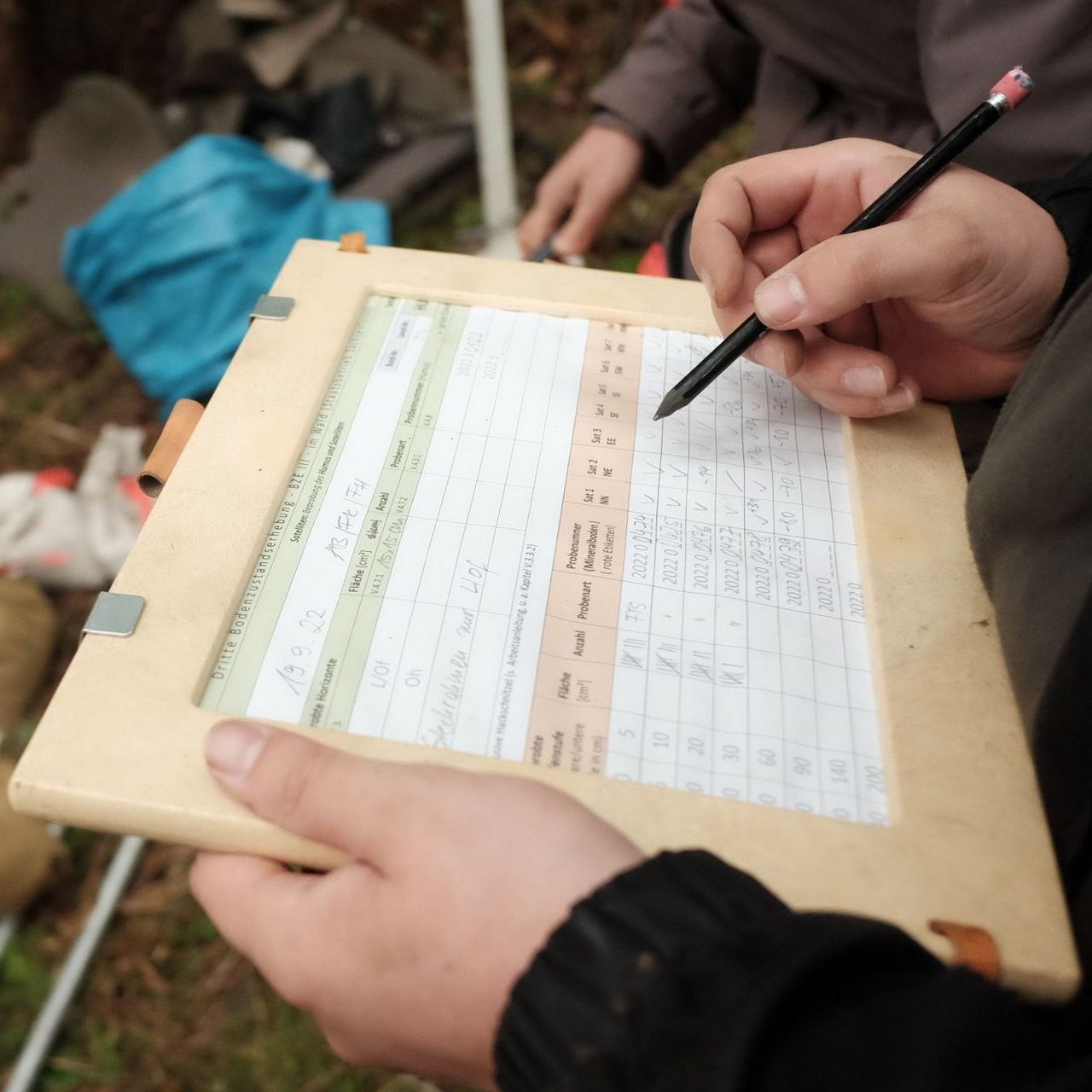Project
BSI-Forest

Biological Soil Inventory of German forests
The diversity and activity of soil communities is important for the maintenance of numerous ecosystem functions. Until now, the BZE in the forest has only provided information on forest and soil conditions. With the Biological Soil Inventory in forests, soil biology is considered in a systematic monitoring for the first time.
Background and Objective
Networks of soil organisms and plants are the driving force behind biogeochemical cycles of terrestrial ecosystems. The diversity and activity of soil microbial communities (microflora) of fungi, bacteria, archaea and other protozoa is important for functions such as C storage, resilience of trees to climate change and turnover of organic matter. The mesofauna, such as springtails, horn mites and enchytraea, and the macrofauna, such as earthworms, play an important role in the turnover of organic matter and an intact soil structure in forests. The National Forest Soil Inventory provides information on the vitality of the trees and the physicochemical conditions of soils but soil biology, however, has not yet been considered in the nationwide monitoring system. An extended systematic monitoring can improve our understanding in the relationships among site quality, soil organisms and ecosystem functions.
Approach
This project aims to link the extensive data of the National Forest Soil Inventory (NFSI) with recently collected data on biodiversity and biological activity in the soil. With the third NFSI (NFSI III), a nationwide sampling is conducted at established plots of the NFSI and the Level II intensive monitoring. The soil biodiversity of the microflora will be analysed using molecular and complementary methods for measuring biomass and activity. The meso- and macrofauna will be investigated regarding their diversity and abundance. The integration of biological with physicochemical soil data may help to develop a better process-based understanding of the contribution of forests and forest soils to balanced and sustainable biogeochemical cycles. Therefore, recommendations for forest management can be derived to strengthen forest resilience and adapt forests to climate change. Moreover, knowledge gaps on the state of biodiversity in Germany's forest soils can be closed.
Thünen-Contact

Involved Thünen-Partners
Involved external Thünen-Partners
- Helmholtz-Zentrum für Umweltforschung (UFZ)
(Leipzig, Deutschland)
Funding Body
-
Fachagentur Nachwachsende Rohstoffe e.V. (FNR)
(national, öffentlich)
Duration
1.2023 - 6.2026
More Information
Project funding number: 2220WK94A4
Project status:
ongoing

![[Translate to English:] [Translate to English:]](/media/_processed_/9/2/csm_Allgemein_Thueringen_Hainich_Mischwald_Bolte_2__19d9dab56a.jpg)
![[Translate to English:] [Translate to English:]](/media/_processed_/d/2/csm_100_0001_0013_c05c63e7db.jpg)
![[Translate to English:] Logo des Bundesministerium für Ernährung und Landwirtschaft](/media/allgemein/logos/BMEL_Logo.svg)